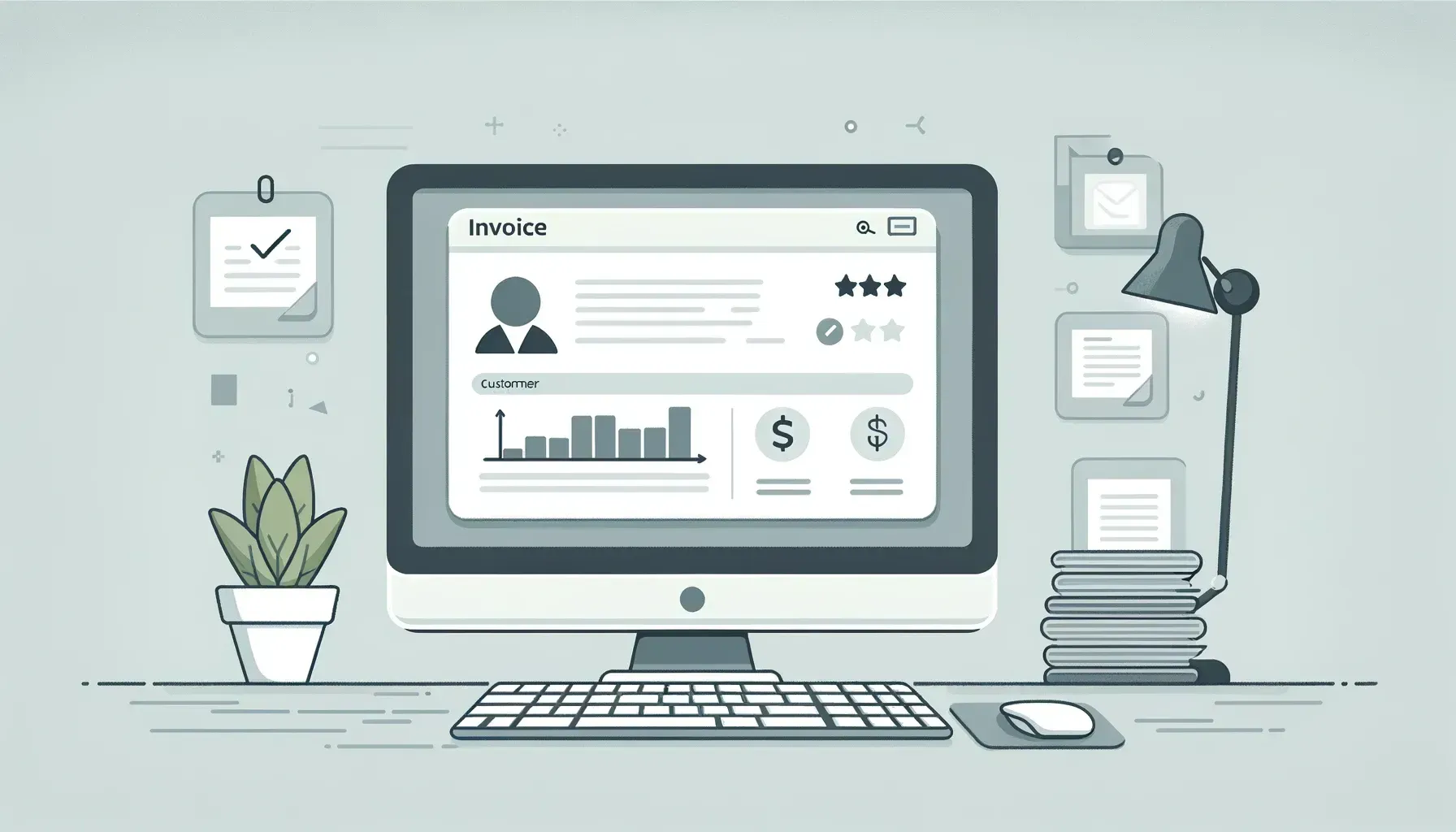Join 30k+ business owners every Sunday at 5pm for actionable automation tips to kickstart your week.
AVERAGE READ TIME
4 Minutes
Written by
POST PUBLISH DATE
How To Create An Invoice In Shopify
Here are four simple tips for shopify invoicing:
- Utilize Shopify's Integrated System: Leverage the convenience of Shopify’s built-in invoicing feature. It’s integrated directly with your e-commerce store, ensuring that all financial and customer data are interconnected and reducing the need for manual data entry.
- Customize Invoices for Brand Consistency: Take advantage of Shopify's customizable invoice templates. Tailor them to align with your brand's visual identity, including your logo, color scheme, and layout, to maintain professionalism and brand consistency in every transaction.
- Streamline Your Process: Embrace the time-saving features of Shopify's invoicing system. It automates calculations and data entry, allowing you to focus more on growing your business rather than being bogged down by administrative tasks.
- Regularly Review and Update: Always review your invoices for accuracy before sending them out. Additionally, keep yourself updated with any new features or updates in Shopify's invoicing system to ensure you are using the tool to its full potential.
In the dynamic world of e-commerce, the significance of efficient and accurate invoicing can't be overstated. It's more than just a bill; it's a reflection of your brand's professionalism and commitment to customer service. For business owners using Shopify, one of the leading e-commerce platforms, mastering the art of invoicing is crucial. This platform not only simplifies the process of managing an online store but also streamlines the often-overlooked intricacies of financial transactions.
But why should you invest your time in learning to create invoices in Shopify? Imagine having a system that not only enhances your brand's credibility but also saves time and reduces errors – that's what effective invoicing in Shopify can offer. This blog post is your go-to guide for navigating the world of Shopify invoicing. Are you ready to transform your transactional experience and impress your customers with seamless and professional invoices? Let's dive into the how-tos and best practices of creating invoices in Shopify!
Creating an Invoice in Shopify
Step 1: Log In to Your Shopify Account
Before you can start creating invoices, you need to access your Shopify dashboard. To do this, go to the Shopify website and click on the 'Log In' button. Enter your store’s domain name, followed by your email address and password. Once you're logged in, you'll be directed to your Shopify admin dashboard. This is the control center for all your e-commerce activities, including invoicing.
Step 2: Navigate to the Orders Section
Now, it’s time to find the orders section. On your Shopify admin dashboard, you'll see a sidebar menu on the left-hand side. Look for the 'Orders' tab and click on it. This section is where all your store's orders are tracked and managed. It's a comprehensive overview of customer purchases, order statuses, and payment details.
Step 3: Select the Order to Invoice
Within the orders section, you'll see a list of all the orders placed in your store. Browse through the list and select the order for which you want to create an invoice. Click on the order number or the customer's name to open the order's details. This step is crucial because it ensures that you're creating an invoice for the correct order.
Step 4: Generate the Invoice
Once you have the order details in front of you, look for an option to create an invoice. Shopify might offer an integrated feature or require an app for invoice generation, depending on your plan and settings. Follow the prompts to generate the invoice. This typically involves confirming the order details, selecting a template, and adding any additional information required.
Step 5: Review and Send the Invoice
After generating the invoice, take a moment to review it thoroughly. Check for accuracy in quantities, prices, customer details, and your store information. An accurate invoice reflects your brand's attention to detail. Once you're satisfied, send the invoice to the customer. This can usually be done directly through Shopify via email. Ensure that your email includes a polite message and instructions for payment, if necessary.
By following these steps, you can efficiently create and send invoices in Shopify, enhancing your store's professionalism and streamlining your financial processes.
Benefits of Using Shopify for Invoicing
Shopify's built-in invoicing system is designed with convenience in mind. As an integral part of the Shopify ecosystem, it seamlessly integrates with your online store, ensuring that all your sales, customer data, and financial information are interconnected. This integration eliminates the need for separate accounting software or manual data entry, reducing the potential for errors. When you create an invoice in Shopify, it automatically includes relevant details from the customer's order, such as product descriptions, quantities, and prices.
Professionalism in Every Transaction
Another significant advantage of using Shopify for invoicing is the level of professionalism it brings to your business transactions. Shopify offers a range of customizable invoice templates that you can tailor to match your brand identity. This customization includes adding your logo, choosing a color scheme, and even customizing the layout. Presenting a professionally designed invoice not only enhances your brand image but also instills confidence in your customers about your business's legitimacy and attention to detail.
Streamlining the Invoicing Process
Time is a valuable resource in business, and Shopify's invoicing system is a time-saver. The platform automates several aspects of the invoicing process, such as calculating totals, taxes, and shipping costs, based on the data from the order. This automation significantly reduces the time spent on creating each invoice, allowing you to focus more on growing your business and less on administrative tasks. Furthermore, with the ability to track invoices and payments directly within Shopify, you can easily manage your cash flow and financial records.
Embracing Efficiency with Shopify Invoicing
The benefits of using Shopify for invoicing extend beyond mere functionality. We delved into the advantages of its convenience, seamless integration with your e-commerce store, and the professional flair it adds to your transactions. By streamlining the invoicing process, Shopify not only saves time but also ensures consistency and accuracy in your business's financial dealings.
Step into the World of Simplified Invoicing with Shopify
Now that you're familiar with the process and benefits of creating invoices in Shopify, it's time to put this knowledge into action. Embrace the efficiency and professionalism that Shopify's invoicing system offers. If you haven't already, explore these features and start implementing them in your e-commerce business. Visit Shopify's website or check out their invoicing resources to get started.

How do I create an invoice in Shopify?
Log in to your Shopify account, go to the 'Orders' section, select the order you want to invoice, and then generate the invoice. Review the details for accuracy before sending it to the customer, usually via email.
What are the benefits of using Shopify for invoicing?
Shopify's invoicing system integrates seamlessly with your online store, automates calculations, and offers customizable templates. This streamlines your invoicing process, enhances professionalism, and reduces errors.
Can I customize my invoices in Shopify?
Yes, Shopify allows you to customize your invoices with your logo, color scheme, and layout to match your brand identity. This helps enhance your brand’s image and conveys professionalism in your transactions.
THE AUTOMATION
NEWSLETTER
Join 30k+ business owners every Sunday at 5pm for actionable automation tips to kickstart your week.
